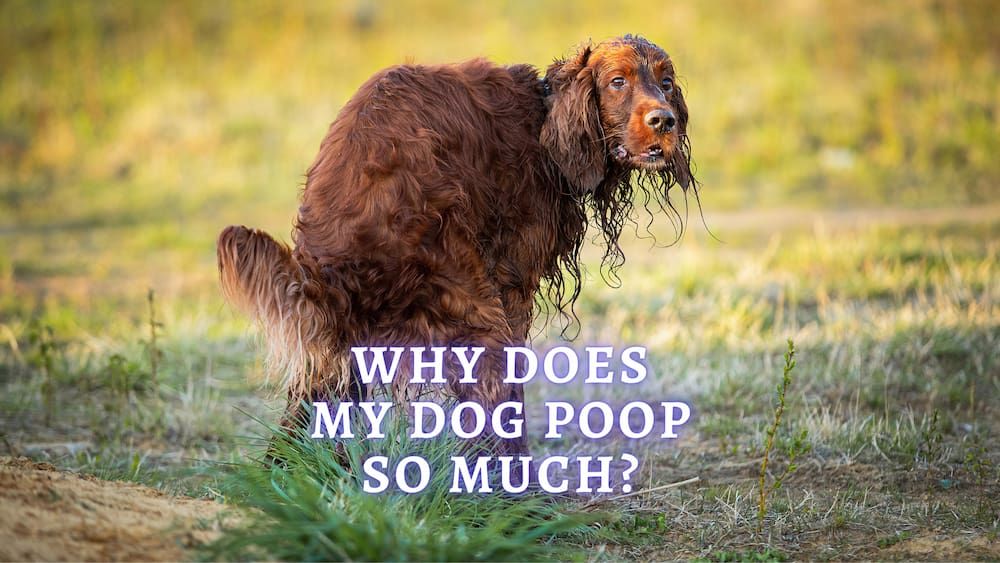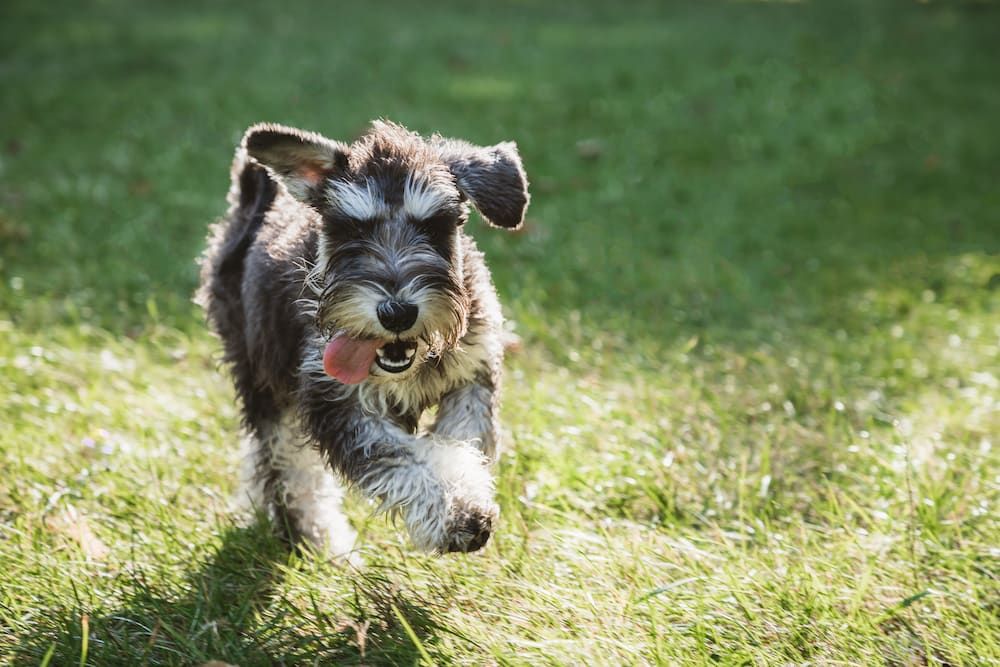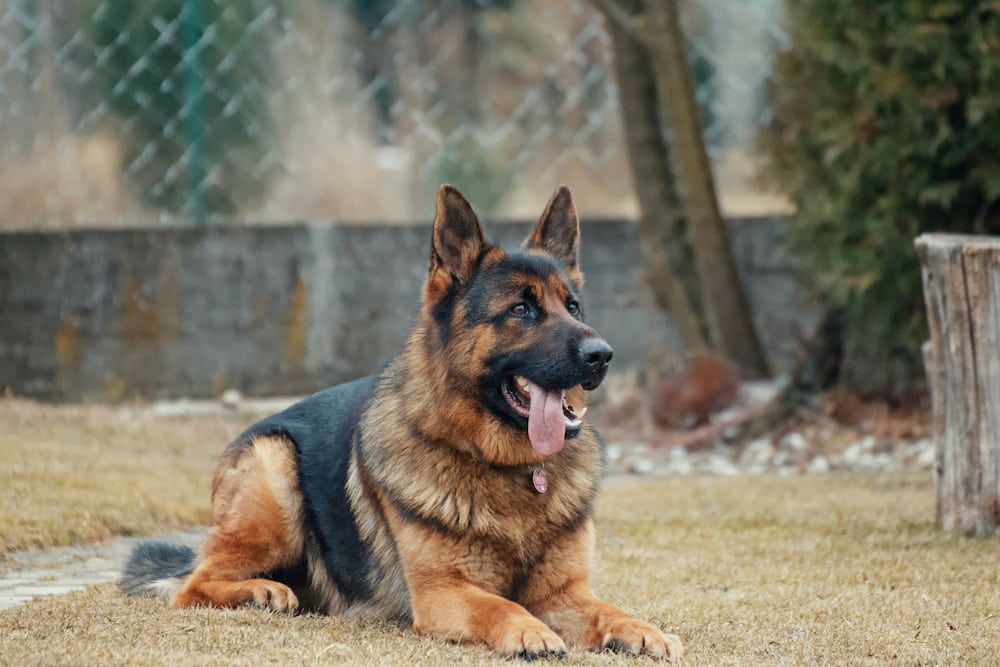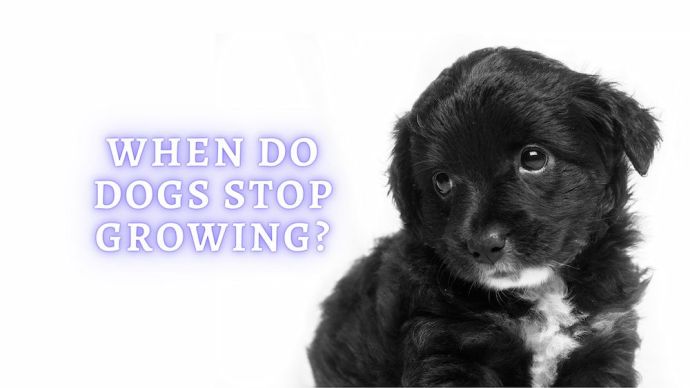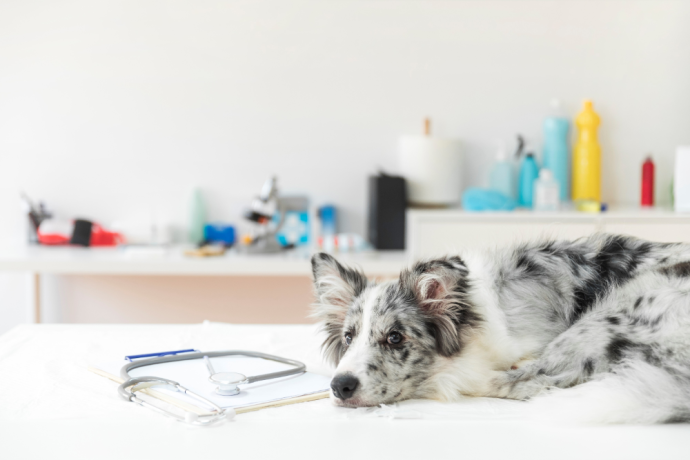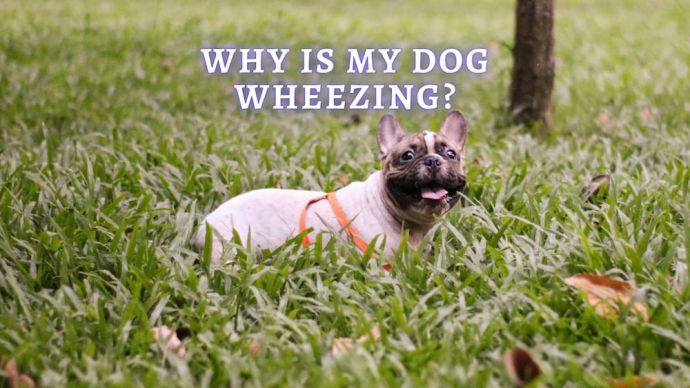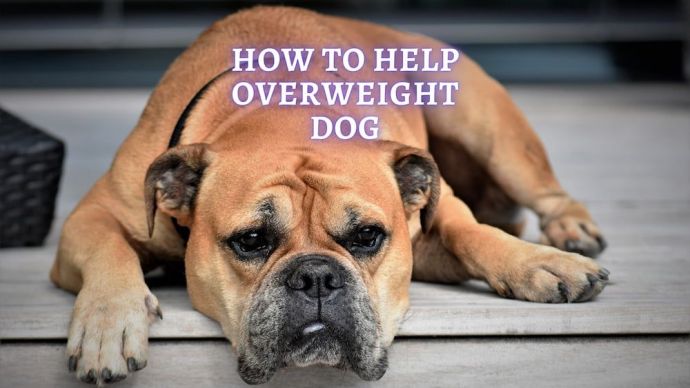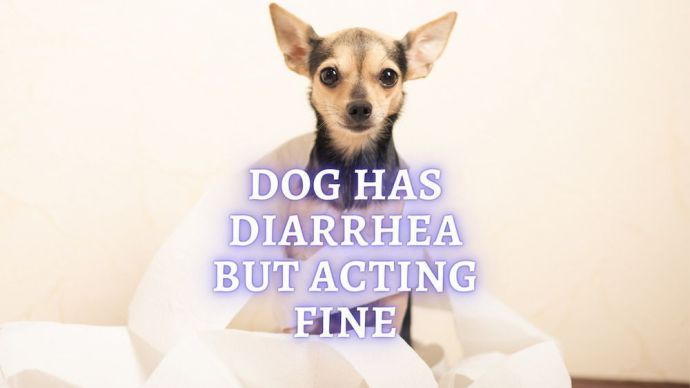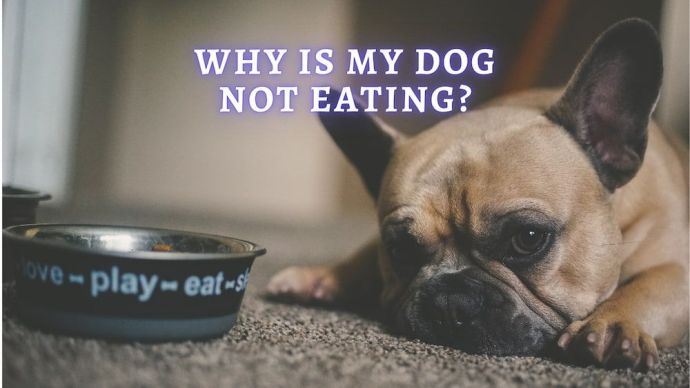Why Does My Dog Poop So Much? Determining A Healthy Poop Schedule For Your Dog
Written by:
Author: Marissa Prizio
Marissa Prizio attended the University of New Hampshire and earned a bachelor's degree in biomedical Animal Science. Marissa has always enjoyed writing; she was even mixing literature classes into her science major in college. During her writing career, she has edited eBooks, written for a variety of websites, and created audio-visual courses for sustainability.
View all 36 articlesLearn about our editorial process and veterinary review board.
Viewed: 184
Updated on: 09/27/2022
Dog owners know that having a canine companion has positives and negatives, and dog poop tends to fall on the opposing end of that spectrum. Cleaning up after our pets isn’t always the most enjoyable experience, but it is an essential part of being a pet parent.
The truth is, your dog’s poop can tell you a lot about their health, especially regarding how often the dog poops. When, where, and how your pup defecates can alert you to health concerns and help you improve their lifestyle. It’s time to take note of your dog’s bathroom breaks so you can decipher why they poop so much.
Why does my dog poop so often?
Dog’s bowel movements can be a mystery, especially to new pet parents. Much like humans, each dog is different. Your dog’s breed, size, sex, age, medical conditions, and food contribute to how often they defecate.
Puppies, for example, are relatively small but consume a lot of food and grow quickly. What goes in must come out, so that big puppy appetite combined with developing muscle control can lead to many bathroom breaks.[1]
Adult dogs poop on a much more regular schedule in most cases. Their bodies are fully developed, and their diets tend to be more stable. Pet parents may find their pups producing too much stool when they are sick or consuming the wrong type of food. A quick visit to the vet can help resolve this depending on the specific cause, and any excess or change in feeding should come with the expectation that your dogs will poop more until they adjust.[2]
Possible causes of excessive pooping
A stool can say a lot about a dog’s health and diet. When a dog seems to be pooping more than usual, it can be for several reasons. One of the most significant contributors to excessive pooping is what your pet eats.
Dogs may seem tough, but it doesn’t take much to give most dogs an upset stomach. This is especially true for dogs who have food intolerances or have been on the same diet for an extended period. Changing your dog from old food to new food, especially if the change is abrupt or the foods have very different ingredients, tends to result in a sudden increase in poop.[2]
Table scraps and human food can have the same effect on your pet’s stomach. Some foods are too greasy, fatty, or even toxic for pets to consume, resulting in loose stools that happen much more frequently.[3]
Senior dogs may have underlying health issues that contribute to excessive pooping, ranging from kidney disorders to digestive problems due to old age. Older pups may also display a sudden increase in defecation if they are experiencing nerve damage that impacts their ability to control when they poop.[4]
When dogs poop more than normal, it is generally the result of some form of stomach upset. It is up to you and your vet to determine and resolve the underlying cause, especially if your pup’s poop schedule becomes concerning.
RELATED: Dog Not Pooping: How Long Can a Dog Go Without Pooping?
When should you worry about your dog’s poop schedule?
When it comes to overall health, poop is a good indicator of how your pup is doing. If you have a baseline for how often your pet normally poops, compare that to how much you see your dog poop each day. If your pup has accidents in the house or requests to go to the bathroom much more than normal one day, that is an initial reason for concern.[4]
An observation of quality should follow this observation of quantity. How does your dog’s stool look? Green stool may be the result of consuming plant materials that have upset their stomach. Yellow color is also concerning, and any poop with red streaks or an almost black color should lead you to call a veterinarian immediately, as this could be the result of intestinal damage.[3]
Aside from any odd colors, take note of the consistency of your pup’s stool. Liquidy or gelatinous poop is normally a sign of digestive tract upset. This could be caused by eating foods that are not easily digestible for canines, having intestinal parasites, or a number of other health issues that would need to be addressed by a vet.[2]
As a general rule, if your dog’s health suddenly changes or other symptoms appear once you notice a significant change in their toilet schedule, it is worth calling your vet’s office. This is especially true if excessive defecation in the form of diarrhea continues for a few days or a senior dog is concerned.[2] [3] Your vet will be best able to assess your dog’s health and provide them with any medication or fluids they may need to treat an underlying cause.
READ MORE: What Are The Little White Specks In Dog Poop? (Vet Advice)
What does a healthy poop schedule look like?
A healthy dog’s poop schedule is fairly consistent as long as their daily routine is consistent. Most pups eat the same type and amount of food every day. Depending on their owner’s schedule, they may also take bathroom breaks and exercise simultaneously every day. As long as a dog isn’t experiencing any environmental factors or wellness change, a routine life often results in regular bowel movements.[1]
The stool quality and quantity can vary from individual to individual. Healthy dog poop should be firm and not have an odd color. If your dog poops multiple times a day, but they never seem to strain or have diarrhea, it is of little concern in most cases.
READ MORE: How Many Times a Day Should a Dog Poop? (Vet Advice)
How to support a healthy schedule?
Many aspects of a dog’s life are heavily influenced by the owner’s choices, even the poop schedule. If you feed quality dog food and stop feeding a mix of treats or table scraps, you can expect an improvement in your pet’s bowel movements.
Make sure to prioritize fresh food. Even kibble can go bad over time if it is not stored appropriately, and this minor change in diet can have a major impact on your pet’s digestive tract. Aside from storing food properly, you can also incorporate fresh dog food in the form of canine-safe fruits and vegetables.[5] These fiber and nutrient-dense food items support good digestive health when combined with a balanced diet.
Dogs poop most often after they have eaten or exercised. If you want to encourage your pup to use the bathroom at a specific time, prefacing potty time with play or a meal can help.[1] Most adult dogs poop at least once a day and have preferred spots where they do their business, so giving them time and taking them to a preferred space can also support a healthy schedule.
Your pup’s health is another major factor in their toiler schedule. Things that can’t always be seen, like intestinal parasites, nerve damage, or food allergies, are best assessed and managed with the help of a vet.[2] [4] Adult dog’s poop is often checked yearly at vet visits for some of these reasons, so don’t forget to bring a fecal sample even if your pet seems healthy on the outside.
FAQ
How much is too much pooping for a dog?
Dogs poop once to a couple of times a day on average. If you find that your pup is pooping far more frequently, is straining to defecate, or that dog’s stool has an abnormal appearance, something may be wrong.
Puppies may poop more frequently than adults since they are still learning to be house-trained, and they need to eat a lot to grow. If your puppy is defecating excessively or experiencing diarrhea, you should see a vet.
How do I stop my dog pooping so much?
Too much food can lead to too much stool. If you notice your pet is gaining weight and pooping excessively, it may be time to reassess their feeding schedule with the help of your veterinarian.
If you are trying a new diet, it is normal for them to start pooping more, and your dog’s stool may even be liquid due to a sudden change in diet. The best way to avoid this is by gradually changing them to a new diet and avoiding unfamiliar treats.
How many times should a dog poop in a day?
A dog’s poop is dependent on a lot of factors, but one to a few poops a day is generally considered normal as long as there is no diarrhea or discomfort. Some pups may even skip pooping one day and poop more the next day. Your dog’s version of normal is dependent on their health history.
Is It Normal For My Dog To Poop Five Times A Day?
Most adult dogs poop at least once a day, but some will use the bathroom much more frequently. If your adult pup doesn’t normally poop five times a day, or they seem to have other symptoms coupled with increased defecation, it is abnormal.
Puppies tend to poop more than adults, but if your pet’s stool seems normal and they are otherwise healthy, there is little reason for concern.
Article Sources:
- ”Housetraining Puppies & Dogs.” American Humane, 8 July 2022, americanhumane.org/fact-sheet/housetraining-puppies-dogs/.
- Llera, Ryan, et al. “Diarrhea in Dogs.” VCA Animal Hospital, vcahospitals.com/know-your-pet/diarrhea-in-dogs.
- ”What You Need to Know About Dogs and Poop.” ASPCA Pet Insurance, 25 Sept. 2017, aspcapetinsurance.com/resources/dog-poop-health/.
- Barnette, Catherine. “Bowel Incontinence in Dogs.” VCA Animal Hospital, vcahospitals.com/know-your-pet/bowel-incontinence-in-dogs.
- ”Sharing Is Caring: Foods You Can Safely Share with Your Pet.” ASPCA, 28 Jan. 2021, aspca.org/news/sharing-caring-foods-you-can-safely-share-your-pet.
 Dog Care Do Dogs Get Tired of Barking? 10 Common Reasons for Dog Barking and How to Stop It
Dog Care Do Dogs Get Tired of Barking? 10 Common Reasons for Dog Barking and How to Stop It - 319
- 0
 Dog Veterinary Tips Why is my Dog throwing up: Causes and Preventing (Veterinary Advice)
Dog Veterinary Tips Why is my Dog throwing up: Causes and Preventing (Veterinary Advice) - 23424
- 5
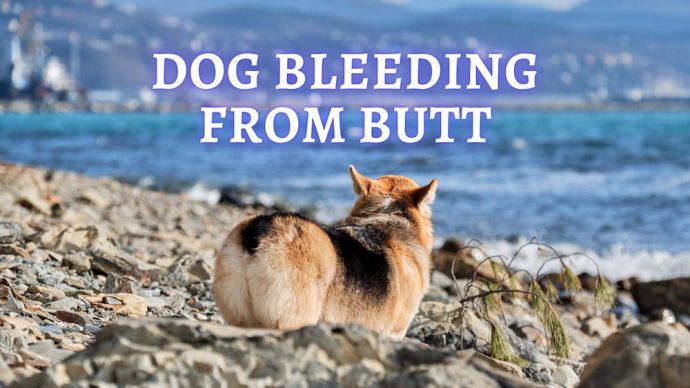 Dog Care Why Is My Dog Bleeding From Its Butt? Causes and treatment of rectal bleeding in the dog
Dog Care Why Is My Dog Bleeding From Its Butt? Causes and treatment of rectal bleeding in the dog - 22076
- 0
 Dog Care My Dog Keeps Scratching His Mouth: Reasons Why Your Dog Scratching Face
Dog Care My Dog Keeps Scratching His Mouth: Reasons Why Your Dog Scratching Face - 17561
- 1









